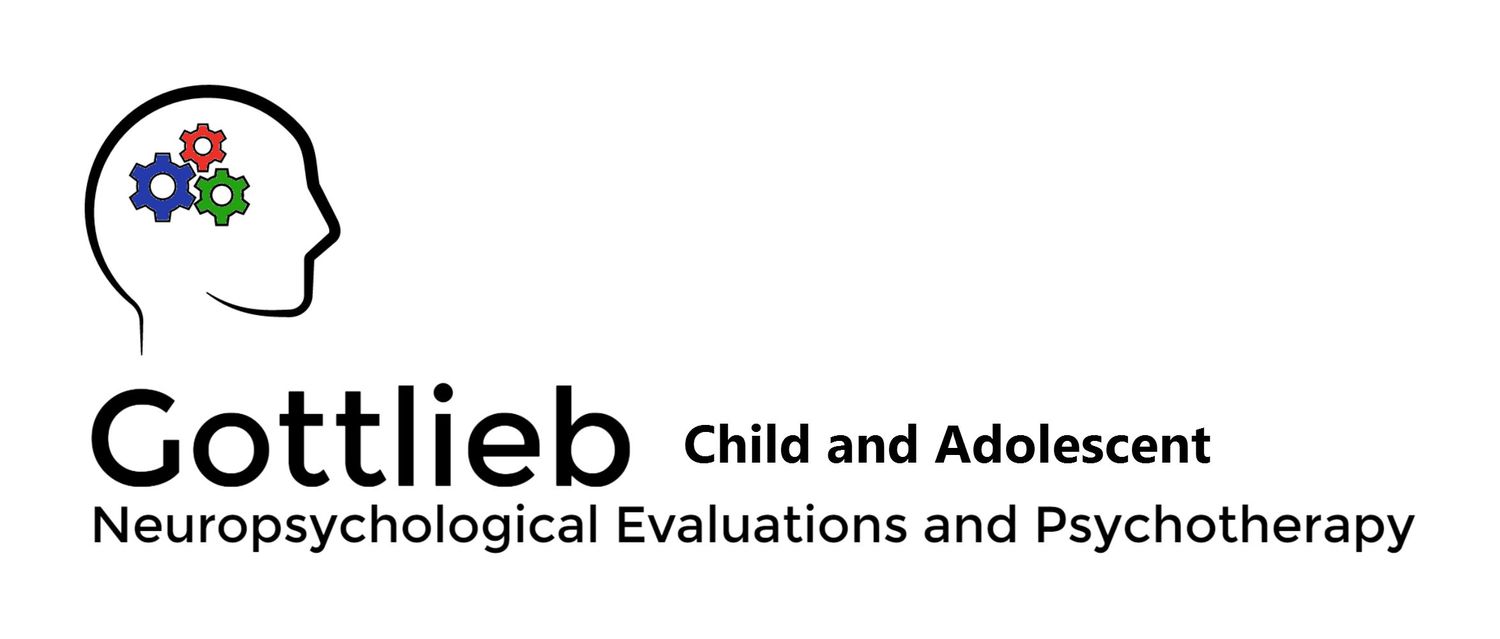Adolescent Test Anxiety: Tips to manage stress and when to seek treatment
/We are approaching the time of year when many teens are preparing for standardized tests like the SAT and ACT, an experience that can be stressful for many adolescents. While most students have taken a variety of standardized tests throughout their education, the SAT and ACT are often viewed differently because of their role in the college application process. In addition, these tests are a reminder of an impending transition to greater independence, which can lead to additional reasons for anxiety.
There are many courses, books, and programs focused on improving one’s SAT and ACT scores; however, the teens emotional experience is often overlooked. A consideration for one’s emotional wellbeing, including strategies to manage anxiety, is a vital component for success on these upcoming exams and more broadly as you support your teen in preparing for college and growing independence.
Keep it in perspective
While it's true that the SAT and ACT tests will likely be an important factor in your child's overall admissions package, they're just that: one important factor. College admissions officers emphasize that they holistically evaluate each applicant. That means they focus on factors beyond test scores, including high school grades, extracurricular activities, an applicant’s personal statement, and recommendations from teachers and counselors. An increasing number of colleges are even becoming “test flexible,” which means students can submit alternatives to the SAT or ACT. Other schools are “test optional,” which means they do not require standardized test scores at all.
As a parent, you can help your teen keep perspective, even when it may seem he or she is not listening to your advice. The less tangible interactions, including how we talk about upcoming tests to other adults when our teens may overhear and our own signs of stress, can impact a teen’s feelings about standardized tests. While you may be conscious about how you talk to your teen directly about the upcoming college board exams, it is also important to be aware of how the broader environment, both at school and at home, is impacting your teen.
Consider your teen’s learning style
Taking tests is a skill, and these tests, in particular, require strategies. There are many types of test prep options—courses, books, practice tests, flash cards—designed to help students prepare for these exams. When working with your teen to consider what approach he or she may utilize, it’s important to consider his or her learning style, attentional capacity, and interests. Some teens learn best in a group setting, while others prefer learning from books and videos in a more individualized setting. While students may be preparing for the same test, individuals learn and process information differently; therefore, the preparation needs to be tailored to the teen’s learning style, stress level, and readiness. Listen to your teen. If test prep is increasing his or her stress level, take a step back and work with your teen to consider how best to proceed.
Strategies to manage stress
Sleep—Countless studies find a significant correlation between kids’ sleep and test performance. The biggest sleep disturbers for most teens are computers, cell phones, texting, and TV. Have your teen unplug at least 30 minutes before going to sleep. Also, watch out for the amount of caffeinated or energy drinks your teen ingests. Some teens consume caffeine in the evening to study; however, if it reduces the quality of his or her sleep, it can have a negative impact on his or her test performance. Besides performance on tests, caffeine and limited sleep exacerbate symptoms of anxiety.
Deep breathing—Slow, purposeful breathing can calm one’s body and mind. Try this technique with your teen: breathe in slowly to a count of three, then exhale slowly to a count of three. Repeat the deep breathing pattern at least three times. While this may feel unnatural at first, regular practice (e.g., nightly before bed) will make this strategy feel more comfortable and effective.
Journaling, drawing, and more —Encourage your teen to journal, draw, or express his or her worries in a way that enables him or her to process and express how he or she is feeling. For some teens, this experience helps clear one’s head and lower stress levels. Similar to deep breathing, these strategies become more effective over time and can be used in a variety of situations.
When to seek professional support
Stress, like many emotional experiences, is on a continuum. A moderate amount of stress can motivate and encourage individuals to prepare and work hard. However, too much stress can negatively impact performance, and when severe, it can become debilitating. Like Goldilocks and the Three Bears, there can be “too much”, “too little”, and “just right.” My goal is to work with children and teens to help them learn how to manage the stressors of everyday life and spend more of their time in this “just right” effective zone.
If your teen is spending most of his or her time in the overstressed zone, consider how this is impacting his or her daily life and wellbeing. Ask yourself, how long has this been an issue; is it situational or ongoing? Are symptoms of stress and anxiety negatively impacting your teen’s daily life at school, at home, and/or with peers? Are there secondary consequences (e.g., sleep or eating disturbance, mood concerns, irritability)? If so, it may be time to seek the support of a mental health professional, such as myself, to help your teen learn to manage his or her anxiety. Please don’t hesitate to contact me for more information at 703-825-0502.
Shira Gottlieb, Psy.D., Licensed Clinical Psychologist
Dr. Gottlieb is a licensed clinical psychologist. She received her B.A. in psychology, with a minor in neurobiology, from Harvard University, and her Psy.D. from the George Washington University. Dr. Gottlieb utilizes an integrative approach to therapy, incorporating both CBT and Family Systems techniques. Treatment goals are discussed with the child/adolescent and family, and are developed with the individual child's needs in mind. For more information on Dr. Gottlieb please visit her website at http://www.gottliebchildpsych.com/


